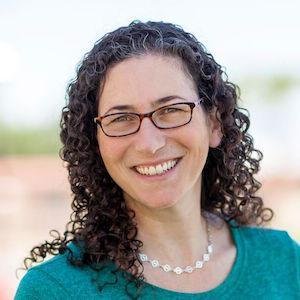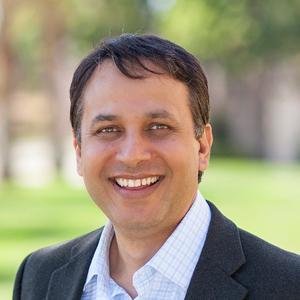The Case for Compassion
Dr. Naomi Levy Source: SCU
Compassion is of the utmost importance when considering the current Israel-Palestine conflict, according to Santa Clara Political Science Associate Professors Dr. Naomi Levy and Dr. Farid Senzai.
The escalation of violence in Israel and Gaza has brought about heightened debate at colleges across the United States, prompting students, staff and administrators to grapple with their response–and Santa Clara’s campus is no different.
According to the New York Times, numerous individuals from both Israeli and Palestinian communities have lost their lives in an ongoing conflict initiated by a sudden attack on Israeli towns, attributed to Palestinian militant group Hamas. Israel has retaliated with airstrikes targeting Gaza, while also preparing its troops for a potential invasion of the region.
Santa Clara’s political science department held a panel discussion on Israel-Palestinian developments on Oct. 19, aimed at educating students and easing tensions, led by Levy and Senzai.
“The goal is to help defuse potential conflicts on the campus between students,” Levy said. “It’s to get students to not change their minds, but at least open up their minds enough so that they can try to understand why other people hold views that are different from theirs."
To begin the discussion, Senzai introduced one of his long-standing classroom activities. Each quarter, the class is divided into two groups: one aligned with Palestianians and the other pro-Israeli. Each student acts as a diplomat, engaging in debate throughout the entirety of the class session. Over the past 18 years, the Israeli and Palestinian groups have consistently failed to reach a consensus.
Dr. Farid Senzai Source: SCU
“This conflict is difficult,” Senzai said. “It could continue to intensify and get worse, and we don't anticipate a solution to the Arab-Israeli conflict anytime soon. But it's about trying to figure out how we can humanize things so that people begin to see the other side, and hopefully that then leads to compassion, which then reduces the tension.”
Both professors engaged the audience with personal anecdotes, delving into their individual connections with both Israel and Palestine. As Levy has lived in Israel and Senzai in Jerusalem and the West Bank, they were able to offer unique perspectives on the situation. They explained the intricate historical narrative of the region's conflicts, exploring religious and cultural links to the land. Additionally, they offered insights into potential solutions moving forward, including what a two-state plan could entail for both countries.
Levy discussed the delicate balance between refraining from making statements on social media platforms and the societal expectations surrounding engagement in online activism. She expressed that the stronger one's stance is, the more challenging it becomes to listen to alternative viewpoints.
“It can be really upsetting,” Levy said. “And when you're really upset, it's really easy to get overwhelmed by those emotions. That can also lead to conflict with people who see it differently from you.”
A large portion of the discussion was dedicated to engaging with numerous student questions. This interactive element promoted a more comprehensive understanding of complex issues and encouraged constructive dialogue.
“The message that Professor Senzai and I ended on and where we started was that of trying to have compassion, which I think is the biggest thing,” Levy said. “And that's compassion, not just for other people in their views, but also for people themselves.”

